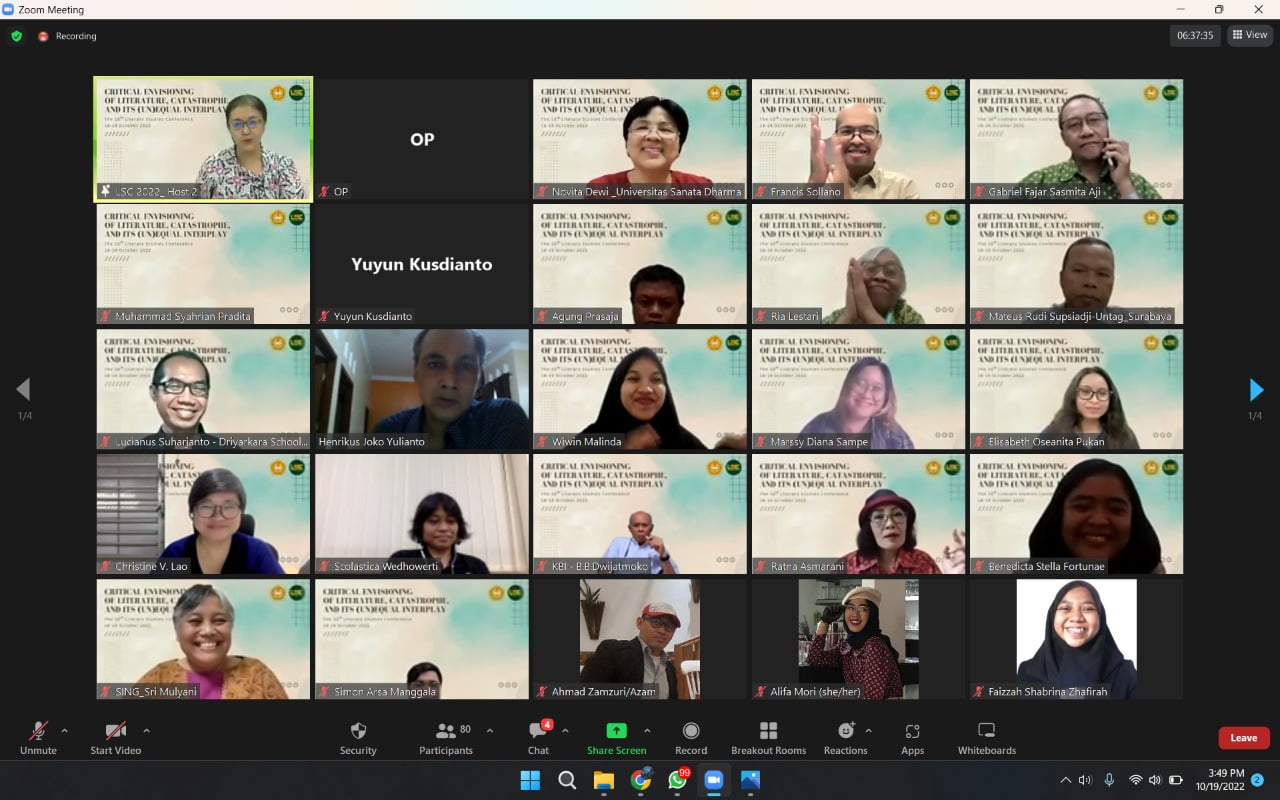
Wednesday (19/10): The English Letter Department of Universitas Sanata Dharma has successfully held its annual activity, the Literary Studies Conference (LSC) in collaboration with Ateneo de Manila University Philippines. This year is the 10th sequence of LSC with the theme “Critical Envisioning of Literature, Catastrophe and its (Un)equal Interplay” which is divided into 13 topics related to the big theme. This activity was held online for two days from 18 to 19 October 2022 via the Zoom platform. The theme was referring to similar discourses on how disasters, their causes, and their recovery are viewed; and why was it always the minority who have to bear more of the burden and consequences. In its commemoration of its 10th anniversary, LSC invited writers, researchers, and also students to share their critical vision of literature through this program.
On the first day, the seminar was opened with a greeting from the Committee of 10th LSC, Elisabeth Oseanita Pukan, S.S. M.A.,then it was continued by a welcome note from the University President, Fr. Albertus Bagus Laksana, S.J., S.S, Ph.D., afterwards the commencement of the conference was declared by Paulus Sarwoto, S.S., M.A., Ph.D, as the Steering Committee. The conference was divided into two plenary and several parallel sessions for the participants to present their papers and have question and answer sessions. The first plenary session was filled by Alex Taek-Gwang Lee from Kyung Hae University with the topic Existential Distortion: Korean Literature and the National Question and Ari J. Adipurwawidjana from Universitas Padjajaran with Ill Stars, Turning Points, and the Pleasure of Irony as his topic. Then the conference was continued with two parallel sessions where 29 papers were presented by each author.
On the next day, there was the second plenary session presenting three speakers, such as Joff P. N. Bradley from Teikyo University with the topic Ecologies for Learning and Practice; Emerging Ideas, Sightings, and Possibilities, Emmanuel M. Luna from University of the Philippines with Nature and Human Dissonance: The Social Dimension of Disasters as his topic, and Elisa Dwi Wardani from Universitas Sanata Dharma with the topic Communication and Confinement in Pandemic Fictions. After that, there were the third and fourth parallel sessions where 24 papers were presented by their authors. The conference then was closed by Novita Dewi as the Steering Committee Member.

This conference went smoothly and was enjoyable for both the participants and the committee. There is a great deal of enthusiasm surrounding the LSC. According to Mala Hernawati, a returning presenter, the conference should continue to explore fascinating and relevant topics that bridge literary works with our socio-historical realities. It is hoped that LSC will continue to provide academics, researchers, and authors with the opportunity to exchange ideas and stay abreast of the most recent research in literary and other humanities studies.

